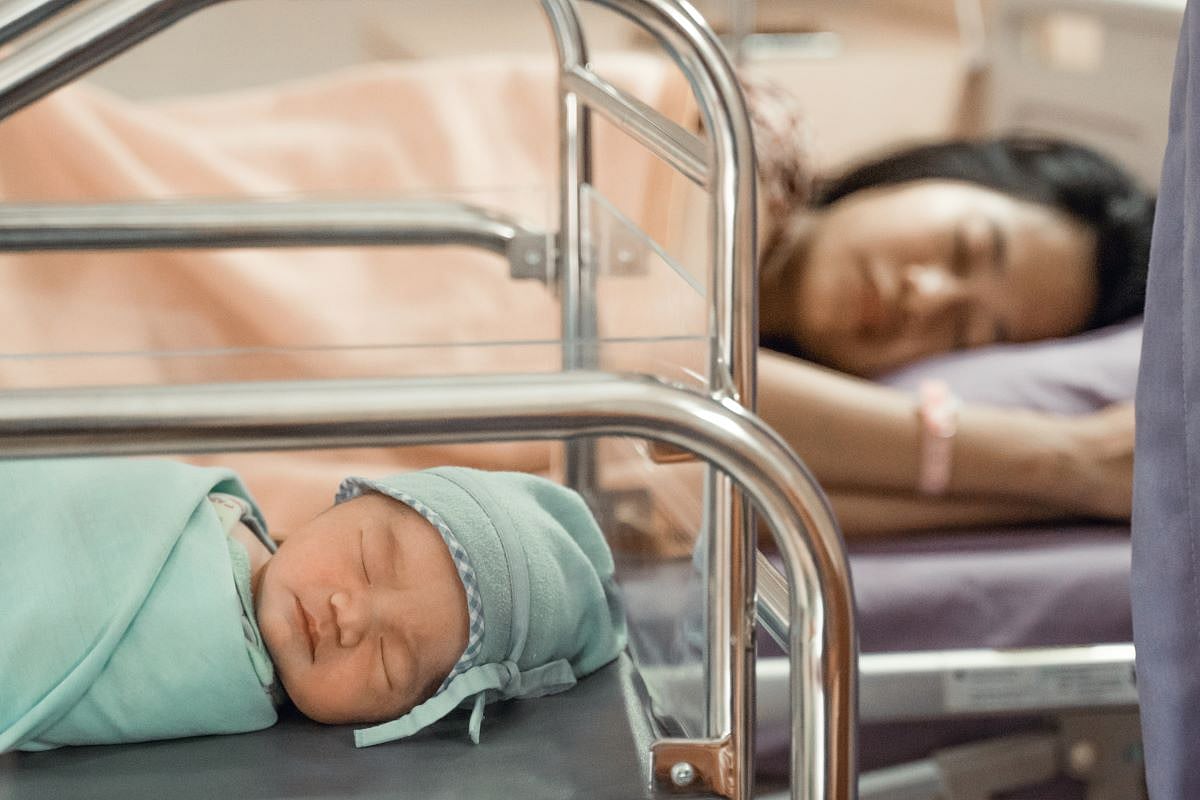THANK YOU!
Get Healthy!

- Posted August 11, 2025
How Confidence and Positivity May Ease Fear of Childbirth
Up to 60% of women feel some level of fear about giving birth, but a new study suggests that a strong sense of mental well-being could make a difference.
Researchers from Robert Gordon University in Scotland and the University of South Australia (UniSA) surveyed 88 women in their third trimester before they attended prenatal classes in northeast Scotland.
The findings — published recently in the Journal of Psychosomatic Obstetrics & Gynecology — show that women who were more positive, confident and in meaningful relationships reported fewer childbirth fears.
While 12% of participants reported “severe” fear of childbirth, those with higher mental well-being scores — measured by the Warwick-Edinburgh Mental Wellbeing Scale — were more likely to feel calm and confident.
"A woman’s sense of mental well-being was the strongest predictor of how fearful she felt about giving birth," co-author Tracy Humphrey, executive dean of clinical and health sciences at UniSA, said in a news release.
“This includes having a sense of purpose, emotional positivity, and meaningful social relationships – all things that are often overlooked in maternity care,” she added.
The second most important factor was childbirth self-efficacy — a belief that one can successfully complete a task.
"Particularly whether women believed they could apply coping strategies when the time came,” Humphrey said.
Lead author Katrina Forbes-McKay said these findings point to the need for change in maternity care.
“While many studies have explored the negative effects of childbirth fear, including prolonged labor, emergency caesareans and postpartum mental health issues, there has been little research into what protects women from experiencing those fears,” said Forbes-McKay, a senior lecturer in psychology at Robert Gordon University.
“Our findings highlight the need for [prenatal] care that doesn’t just teach women what to do during labor but also empowers them to believe they can do it,” she added in a news release.
The researchers say childbirth education should:
Foster confidence in using labor techniques such as breathing and visualization.
Support social connection
Focus on wellness, not just risks.
The study also builds on research into prenatal relaxation practices.
Mo Tabib is a midwifery lecturer at Robert Gordon University who led the work as part of her doctoral studies.
She said women who used the relaxation techniques reported “significant improvements” in their mental well-being and confidence as delivery day neared. These improvements endured for four to eight weeks after delivery.
“By addressing fear of childbirth through psychological and educational interventions, we not only support women to have more positive birth experiences but potentially reduce medical interventions and improve outcomes for mothers and infants,” Tabib said in a news release.
The team is now calling for larger studies across diverse populations to confirm the results.
More information
UCLA Health has more on preparing for labor and delivery.
SOURCE: University of South Australia, news release, Aug. 7, 2025







